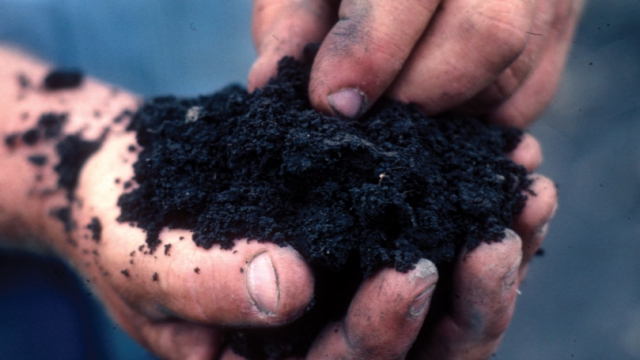In our neverending quest for greener living, organic gardening has gained significant momentum in recent years. As more people become aware of the harmful effects of synthetic chemicals, there is a growing desire to return to the natural ways of nurturing our plants and soil. One key element in this pursuit is the use of organic soils, which offer an array of benefits that can transform our gardens into thriving ecosystems.
At the heart of organic gardening lies the understanding and respect for the intricate balance of nature. Organic soils, also known as living soils, embody this philosophy by mirroring the natural processes that occur in the wild. These soils are teeming with beneficial microorganisms, such as bacteria, fungi, and earthworms, which work harmoniously to decompose organic matter and maintain nutrient cycles. In doing so, they create a vibrant ecosystem within our gardens, enhancing plant growth, bolstering disease resistance, and promoting overall soil health.
Organic soils also play a pivotal role in balancing soil structure and moisture retention. Their rich composition aids in preventing soil erosion, as well as facilitating water infiltration and drainage. This, in turn, reduces the need for excessive irrigation and conserves water resources. Furthermore, the organic matter present in these soils acts as a sponge, holding moisture for longer periods, and providing a steady supply of water to plants, even during dry spells.
While chemical fertilizers have often been the go-to solution for many gardeners seeking quick results, organic soils offer a more sustainable and long-term approach. When properly nurtured, they provide plants with all the essential nutrients in a slow-release fashion, reducing the risk of nutrient imbalances and subsequent plant stress. This allows for healthier and more resilient plants that can better withstand both environmental challenges and pest pressures.
In the realm of organic gardening, the use of fertilizers is not synonymous with harmful chemicals and synthetic substances. Instead, organic fertilizers derived from natural sources such as compost, worm castings, bone meal, and seaweed extract, contribute to the organic soil’s nutrient content without compromising its ecological balance. This ensures that our gardens thrive, not just in the present, but for future generations to come.
By embracing the power of organic soils, we unlock nature’s potential to support and nourish our gardens, creating beautiful and sustainable spaces that are not only visually appealing but also conducive to biodiversity and ecological harmony. So, let us embark on this rewarding journey of organic gardening, and discover the immense benefits that lie beneath the surface of our soils.
Benefits of Organic Soils
- Enhanced Nutrient Content:
Organic soils are packed with essential nutrients that promote healthy plant growth. These soils are rich in organic matter, such as decaying plants and animal waste, which break down over time to release valuable nutrients. Unlike synthetic fertilizers that provide quick but temporary boosts, organic soils offer a long-lasting supply of nutrients that nourish plants steadily and sustainably.
- Improved Soil Structure:
One key benefit of organic soils is their ability to improve soil structure. The organic matter in these soils acts as a binder, helping to create aggregates that enhance soil porosity and water-holding capacity. This improved structure facilitates better root penetration, air circulation, and nutrient absorption, ultimately resulting in healthier plants with stronger root systems.
- Environmental Friendliness:
Opting for organic soils is not only beneficial for plants but also for the overall environment. Organic soils promote sustainable agriculture and gardening practices by reducing the use of chemical fertilizers and pesticides. By minimizing chemical inputs, organic soils help prevent water and soil contamination, preserve biodiversity, and support the natural ecosystem.
Remember, organic soils pave the way for a harmonious coexistence between plants and the environment, providing numerous benefits that extend beyond the beauty of our gardens.
Types of Organic Fertilizers
In the world of organic gardening, there are various types of fertilizers that can help nourish your plants naturally. These fertilizers are derived from organic matter and promote sustainable and eco-friendly practices. Let’s explore three common types of organic fertilizers:
Compost: Compost is commonly referred to as "black gold" in the gardening community. It is made by decomposing organic materials such as kitchen scraps, yard waste, and manure. Compost is rich in essential nutrients, improves soil structure, retains moisture, and enhances microbial activity. By adding compost to your garden beds, you enhance the fertility of the soil, benefiting plant growth and overall health.
Organic Plant-Based Fertilizers: Derived from plant sources, these fertilizers offer a natural boost to your plants. Examples include seaweed extracts, alfalfa meal, and cottonseed meal. Seaweed extracts provide essential micronutrients and growth hormones, making them beneficial for overall plant health. Alfalfa meal is a great source of nitrogen, while cottonseed meal adds phosphorus and potassium to the soil. These plant-based fertilizers are often mixed into the soil or applied as foliar sprays to provide nourishment directly to the plants.

Animal-Based Fertilizers: Animal-based fertilizers are derived from animal by-products, such as bone meal, blood meal, and fish emulsion. Bone meal is rich in phosphorus and calcium, making it ideal for promoting strong root growth and flowering. Blood meal provides a quick source of nitrogen and is particularly useful for leafy greens and plants that require high nitrogen levels. Fish emulsion is a liquid fertilizer made from fish waste, and it offers a balanced mix of nutrients that can benefit a wide range of plants.
By incorporating these types of organic fertilizers into your gardening routine, you can nourish your plants, promote soil health, and contribute to a more sustainable and natural approach to gardening. Stay tuned for the next section, where we discuss the best practices for using organic fertilizers effectively.
Best Practices for Using Organic Soils
Proper Soil Preparation
Before using organic soils, it is essential to prepare the ground adequately. Start by removing any weeds, rocks, or debris that may hinder the growth of your plants. Break up the soil to improve aeration and drainage. This will create a favorable environment for the organic matter to work its magic.Choose the Right Organic Soil Mix
Harvesting onion
Selecting the appropriate organic soil mix is crucial for successful gardening. Different plants have varying nutrient requirements, so it’s essential to match the soil mix to the specific needs of your garden. Whether you’re growing vegetables, flowers, or herbs, opt for organic soils that are tailored to their specific type. This will ensure optimum growth, healthier plants, and bountiful yields.Apply Organic Fertilizers Regularly
While organic soils are rich in nutrients, it is still important to supplement them with organic fertilizers to maintain soil fertility over time. Use natural fertilizers made from compost, manure, or other organic sources to replenish the nutrients in the soil. Regularly applying organic fertilizers will nourish your plants and promote their overall health and vitality.
By following these best practices when using organic soils, you can unleash nature’s potential and create a thriving garden ecosystem that benefits both your plants and the environment. Take the time to prepare the soil, choose the right soil mix, and consistently nourish your plants with organic fertilizers for a flourishing garden filled with vibrant, healthy plants.


